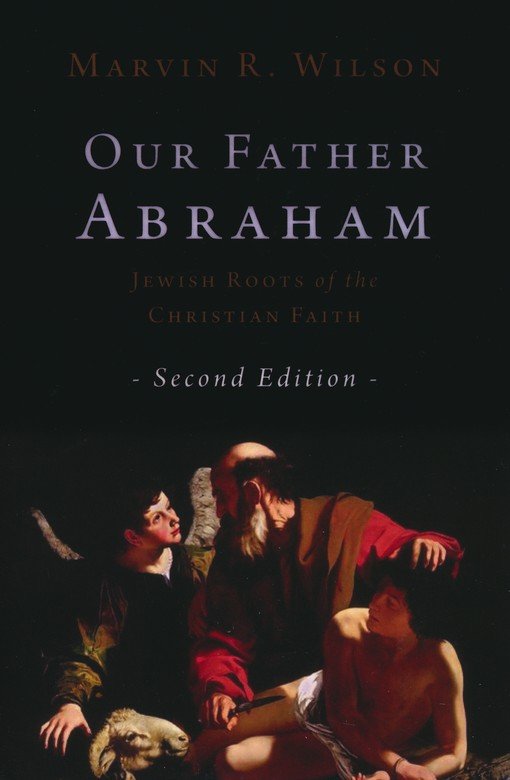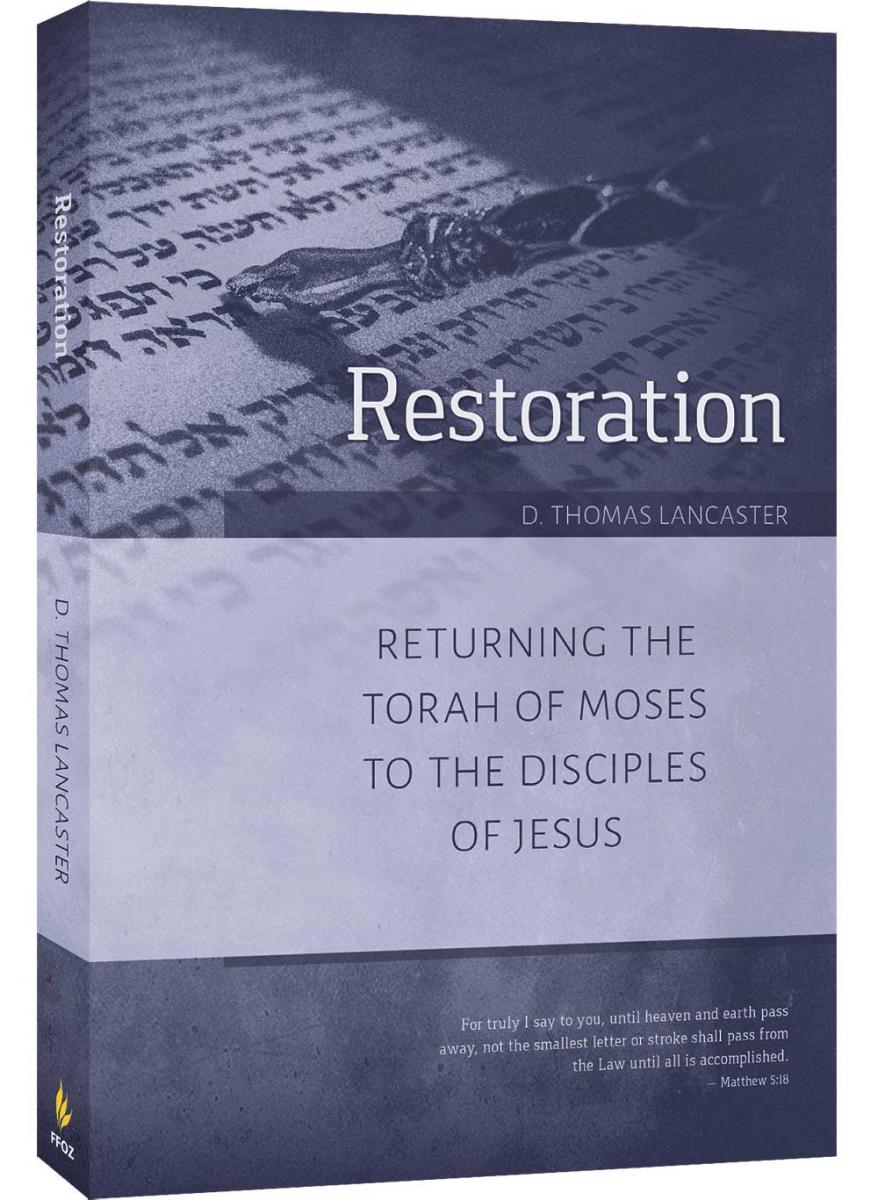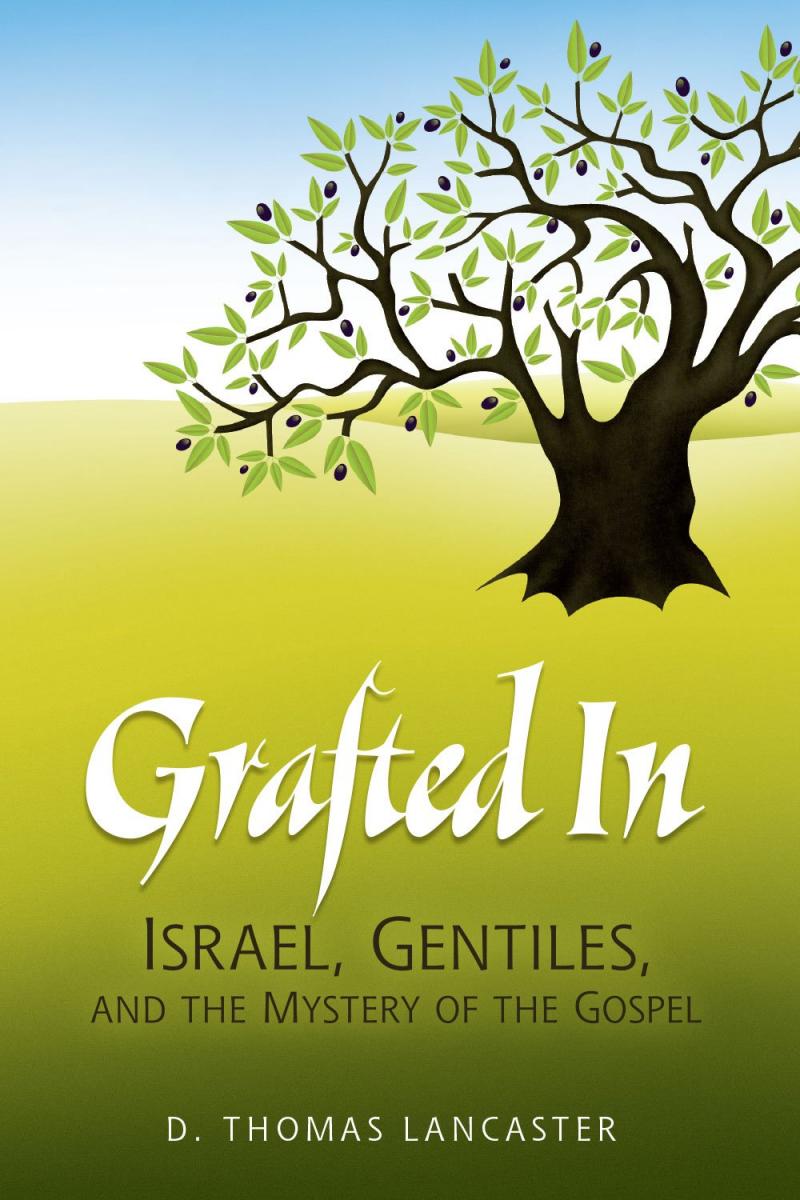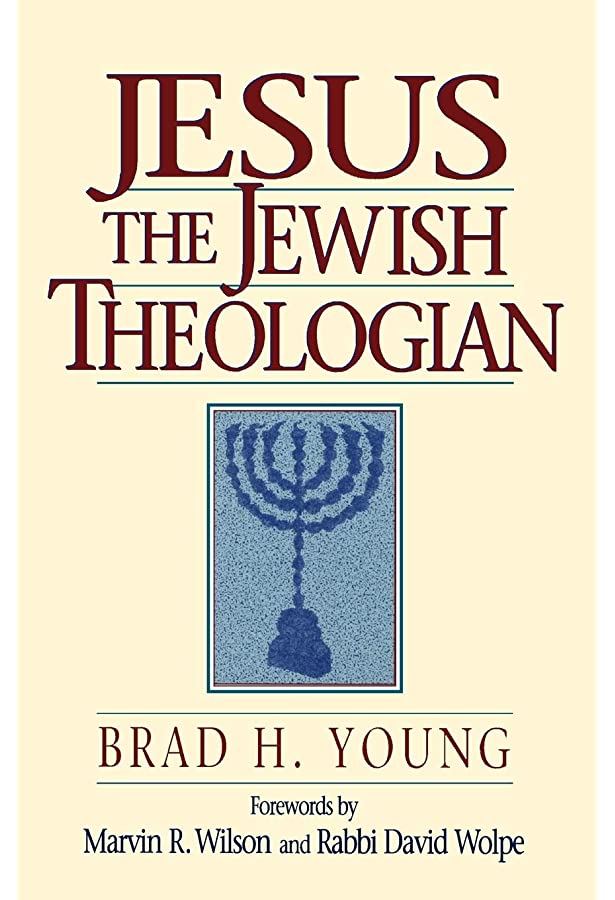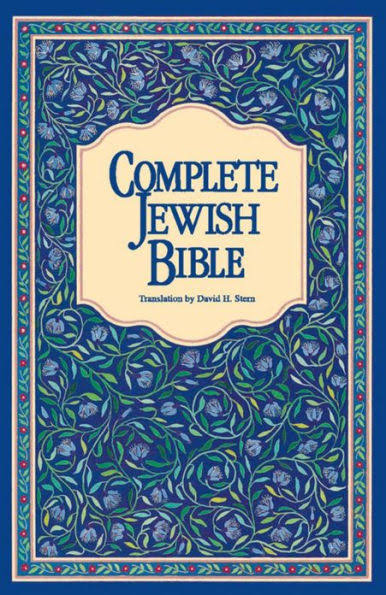5 Books That Changed My Life
I’m about to introduce you to five books that have changed my life and hopefully will change yours as well. These books are some of the very first books I ever read that helped me discover not only the Jewishness of Jesus and the New Testament, but also why knowing about this is important. Stick around and I’ll share these five resources with you, along with links to where you can pick up copies for yourself.
As you may know, I’ve been practicing Messianic Judaism for over two decades. But when I first started learning to see the Scriptures through Jewish lenses, I couldn’t immediately jump into Rabinic writings and have any kind of understanding or appreciation for it. I had to slowly build a new hashkafah ("worldview" or "paradigm"). It’s difficult to know where to start learning about the Jewish Jesus, a devoutly religious Jew who not only loved the Torah, but lived it out as well. I was blessed to have some incredible experiences that influenced my thinking and helped me forge my own path of discovery, and I would like to help you with your own journey.
This is the first in a series I will be creating in order to help people like you who may be trying to find resources that will help you grow in your understanding of Yeshua, the Jewish Messiah of Israel. I want to help guide you in your journey by exposing you to some of the resources that were valuable for me in my own journey. As of right now, I plan to recommend five books post, giving a brief overview of each book and why I think they’re important. I’ll be starting at an introductory level and slowly going into deeper, more scholarly works that need an extensive knowledge of the Jewish setting of the New Testament in order to appreciate.
Let me preface this list by saying that although I still consider all of these great books, I don’t necessarily subscribe to all of the positions put forth by each of these authors. This may come as a surprise to those used to only studying materials whose teachings line up with one’s own doctrinal positions. This is probably one of the biggest challenges for those who are discovering Messianic Jewish teachings and coming from a Christian background. Whereas Christianity places emphasis on the correct creed, Judaism emphasizes correct deed and a life that demonstrates one's faith (as James says). According to Jesus and his apostles, living a life of faith through our actions has more value than holding to the proper belief or creedal formulations. Therefore, I want to give you a tip—if these books contain theological concepts you disagree with, try to set them aside and focus on the other concepts they are conveying. Learn to be a learner, a talmid—a student of our Master Yeshua—who can properly discern the Word of Truth. Last - due to time, I’ve tried to keep these reviews as short as possible while highlighting the best things about each book. Here are the first five books on my LOOOONG book list.
FYI - If you purchase one of these books using the links below, you'll be helping support this ministry as Emet HaTorah will receive a small commission for the sale.
|
|
Our Father Abraham: Jewish Roots of the Christian Faith (Marvin Wilson)I can’t think of a more foundational resource than, Our Father Abraham, by Marvin Wilson. It was a game-changer for my wife and me when we started exploring the Jewishness of our faith all those years ago. It contains wrong assumptions about Jesus & Paul, and how our theological suppositions have created versions of them that never existed. It contains a lot of history, both Jewish history and church history and where the two overlap and diverge. It takes a look at the faith and practice of the earliest believers, as well as the development of anti-Semitism. There’s also a really nice section on understanding Hebrew thought and how it differs from our Western way of thinking. And much more. There’s so much packed into this one book, it’s hard to summarize. However, here are a few titles of the chapters and sections within it:
The list goes on and on. This sampling is ten of nearly 100 sections within the book. It’s just an amazing book that will put you on a path of discovery quickly, and will most likely open up many other roads of exploration in the process. If you don’t already have this in your library, you’ll definitely want to pick up a copy. |
|
Restoration: Returning The Torah of Moses to the Disciples of Jesus (D. Thomas Lancaster)This book is for anyone exploring the ideas of what this whole Messianic thing is about. It takes a look at what the disciples of Jesus have lost over the last two thousand years: The Torah. It unapologetically seeks to prove that the original followers of Jesus belonged to a sect of Judaism and the Torah was central to its religious expression. In his very approachable fashion, Lancaster presents a case for the continued validity of Torah among the followers of Yeshua, the Messiah of Israel. Beginning with the very basics of answering the question, “What is Torah?” to covering multiple objections against Torah adherence, Lancaster calls for a return to recognition of the Sabbath and festivals and an ethic based on the Torah’s eternal truths. Sample chapters include:
Restoration is one of those books you’ll enjoy reading from cover to cover and probably read it multiple times. It truly does what its name claims: It returns “The Torah of Moses to the Disciples of Jesus.” |
||
Grafted In: Israel, Gentiles, & The Mystery of God (D. Thomas Lancaster)Where Restoration explored the meaning of the Torah still being applicable today, Grafted In explores the idea of what that truth means for Gentiles like myself. Exploring the olive tree metaphor Paul uses in Romans 11, this book explores how we—as Gentiles—grafted into the Olive Tree of Israel. Contrary to what is often taught from our pulpits, the Jews in the days of the New Testament weren’t upset at the Apostles for teaching about Yeshua, but for their inclusion of the Gentiles into their ranks. Throughout the book of Acts we see the crowds listening intently to Peter or Paul until they mention the inclusion of the Gentiles. At this, they are provoked and turn hostile toward the Apostles. Grafted In tells specifically how Paul saw the inclusion of the Gentiles into the commonwealth of Israel as what he calls, “the mystery of the gospel,”—language he uses in Ephesians 3—to be the fulfillment of long-awaited prophecy. Grafted In calls Gentiles to recognize their place in the family of God and fulfill their role in the restoration of the Kingdom. Chapters include:
It’s a great book that provides a lot of foundational concepts, specifically for those of us from the nations who are beginning to see the Scriptures through Jewish eyes. |
||
Jesus The Jewish Theologian (Brad H. Young)I was first introduced to Brad Young back in the late 90s in Arkansas at the Jerusalem Conference hosted by Dr. Ron Moseley and what was at that time the Arkansas Institute of HolyLand Studies. This conference was my first introduction to a Jewish perspective of the Scriptures and Dr. Young’s captivating lectures made an impression on me. Dr. Young, along with six other scholars founded the Jerusalem School for Synoptic Research that has had a tremendous impact on the understanding of the Gospels for the last thirty years or more. After hearing Dr Young I immediately purchased Jesus The Jewish Theologian and he instantly became someone I would highly respect even to this day. I have tried to snatch up a copy of everything he has written and continue to be impressed with the quality of scholarship he presents in his materials. Jesus The Jewish Theologian is a book that places Jesus firmly back into his native Jewish environment and helps uncover the Jewish context of his life and teachings from the Gospels. It establishes Jesus firmly within the context of first-century Judaism and shows how understanding His Jewishness is crucial for interpreting the New Testament and what it truly means to have faith in him. In the introduction, he makes the statement, “Although Jesus was Jewish, his theology is sometimes treated as if he were Christian. But Jesus never attended a church. He never celebrated Christmas. He never wore new clothes on Easter Sunday.” It may be a bit radical for some, but it holds a lot of weight if we think about it. Another great quote from the book is:
Forewarning: While I can look back at this and see it as very basic and fundamental more than twenty years later, it might be a bit daunting for some who are just beginning their journey simply because Dr. Young dives deep into the linguistics, historical context, culture, and archaeological discoveries of the New Testament in order to help cast a new light on the Jesus we assume to know. If you want to take off your Greek-colored glasses and see the Jewish Jesus of the Scriptures and history, this is the book for you. |
||
The Complete Jewish Bible (David Stern)First, baruch dayan haEmet, blessed is the True Judge. Dr. David Stern, the author of the Complete Jewish Bible left this world and entered the World of Truth less than a week ago from the time I'm writing this. May his memory continue to be a blessing and may all of his labors for the Kingdom continue to bear much fruit for generations to come. May his family be comforted at this time as well, along with all who mourn in Zion and Jerusalem. The Complete Jewish Bible is the foundational Bible translation for anyone wanting to put the biblical narrative back into its Jewish context. It has proved to be a beloved translation for more than 20 years and is often many people’s first introduction to the Jewish aspect of the Scriptures. Not only does the translation offer insights into many idioms and phrases that have been difficult for translators to understand, but it has two great strengths. First, it connects the “Old” and “New” Testaments together as one unified religious text, rather than one that replaces the other. The second thing it does is to connect the Hebrew Scriptures and Apostolic Scriptures through common language. For instance, in most Bibles, “Ya’akov” or “Jacob” is the father of the twelve tribes of Israel and “James” is the brother of Yeshua. However, Yeshua’s brother wouldn’t have been known by James. His name was Ya’akov / Jacob and he would have been called that. The reason for this is that the Hebrew Scriptures were translated from Hebrew, while the Apostolic Scriptures were translated from Greek. Stern works to maintain the Hebrew of proper nouns throughout the entire biblical text. While I may disagree with Stern about his understanding of certain passages (particularly Paul’s use of “works of the law”), I still believe that as a whole this work is groundbreaking. So, if you want to begin changing how you read Scripture, the Complete Jewish Bible is a great place to start. |
There you have it. These are Five Foundational Books that were at the beginning of my Messianic journey and have changed my life. And I’m sure they will change yours as well.

